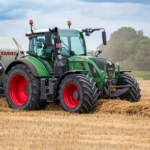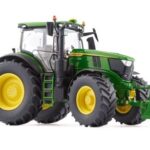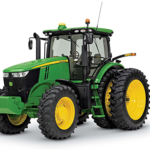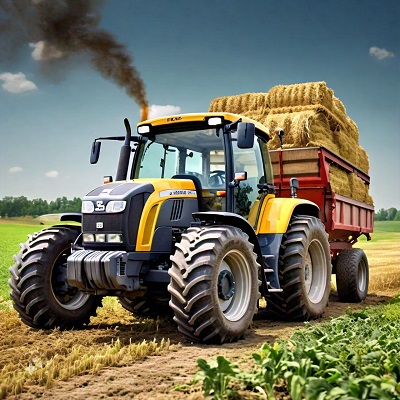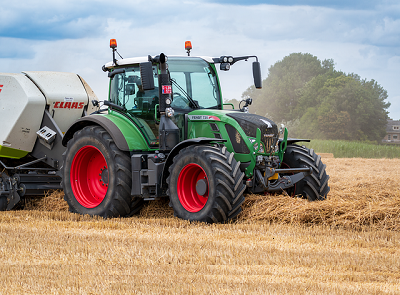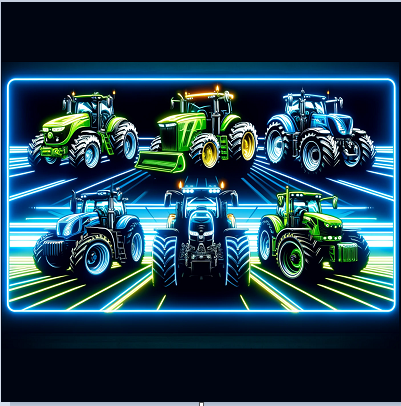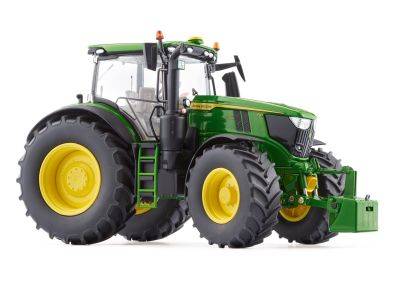A Complete Guide on the Impact of Tractors on Farming Efficiency
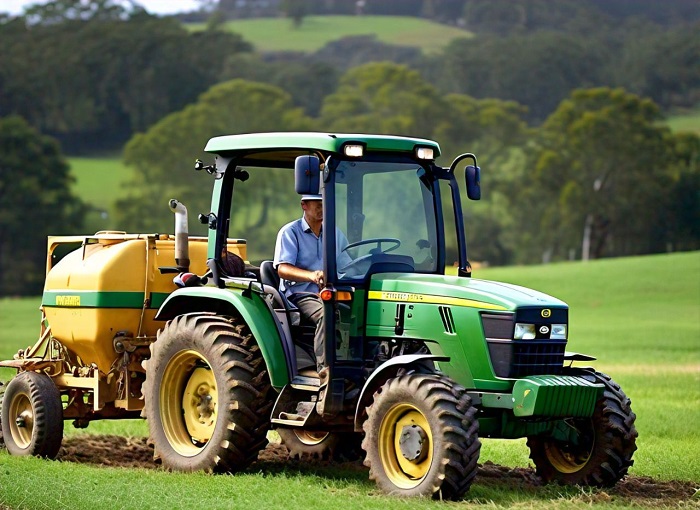
Tractors have a great impact on Farming Efficiency. Tractors have transformed methods of cultivation throughout the world. Farming equipment is now vital in modern farming. Tractors are used for everything from field preparation to agricultural harvesting. It is impossible to understate their influence on farming efficiency. Tractors have revolutionized agriculture by substituting automated power for manual labor and animal power. This article explores how tractors have increased farming productivity, including their advantages, new technological developments, and the prospects for tractor-driven agriculture.
Tractors: A Revolutionary Tool for Agriculture
The Birth of the Tractor
In the latter part of the nineteenth and beginning of the 20th centuries, tractors initially appeared. Compared to conventional farming practices, which mostly relied on labor from humans and animals, they represented a substantial advancement. Tractors were first propelled by steam, and then internal combustion engines took over. These devices soon showed their value by completing activities that previously required a great deal of physical labor. They thus made it possible for farmers to cultivate bigger tracts of agricultural land using less time and effort.
The Shift from Animal Power to Mechanization
Horses and cattle were the main sources of power in agriculture before the invention of tractors. Although useful, this approach had certain drawbacks. Farming demanded more labor and money overall because animals needed to be cared for, fed, and slept. Conversely, tractors could work for long periods without needing to stop. The transition from using animals to power machinery resulted in a notable boost in agricultural productivity. Farmers were now able to finish jobs more swiftly and precisely, which increased output.
Enhancing Productivity with Tractors
Faster Plowing and Tilling
cultivating and plowing the ground is one of a tractor’s main jobs. The impact of Tractors on Farming Efficiency gives the batter reults. Plow-equipped tractors can efficiently and rapidly break up the soil to get it ready for planting. Tractors are faster and more reliable than hand labor or plows pulled by animals. More land is prepared for planting in less time because of the quicker plowing and tilling, which boosts crop yield.
Precision Planting and Seeding
With the sophisticated technology available on modern tractors, precise planting and sowing is possible. Tractors equipped with GPS systems, for example, can navigate exact routes and plant seeds at the proper depth and spacing. Manual planting techniques could not achieve this degree of accuracy. Planting with precision minimizes the wastage of seeds and guarantees that every plant receives the best possible growing environment. Higher crop yields and more effective resource usage are the outcomes.
Efficient Harvesting
Harvesting agricultural products is one of the labor-intensive aspects of farming. Tractor harvesting equipment, such as combine harvesters, has greatly increased this method’s efficiency. A combined harvester can cut, grind, and clean grains in one pass, saving a significant amount of effort and collecting time. Farmers can harvest crops at their peak ripeness due to increased productivity, which produces higher-quality produce and reduces rotting losses.
Reducing Labor Costs and Time
Decreasing the Need for Manual Labor
Farms no longer require as much human labour thanks to tractors. With a tractor, a single operator may now perform tasks that previously needed a big staff. For farmers, this decrease in labour requirements means substantial cost savings. It also gives farmers more time to concentrate on other facets of their business, such marketing, management, and planning.
Expanding Farm Sizes
Farmers can now oversee bigger expanses of land because to tractors’ efficiency. Farmers can grow their businesses and produce more when they can plough, plant, and collect more swiftly. Because of this expansion, commercial farming has flourished and farmers are now able to meet the demands of an expanding population by producing food on a greater scale.
Technological Advancements in Tractors
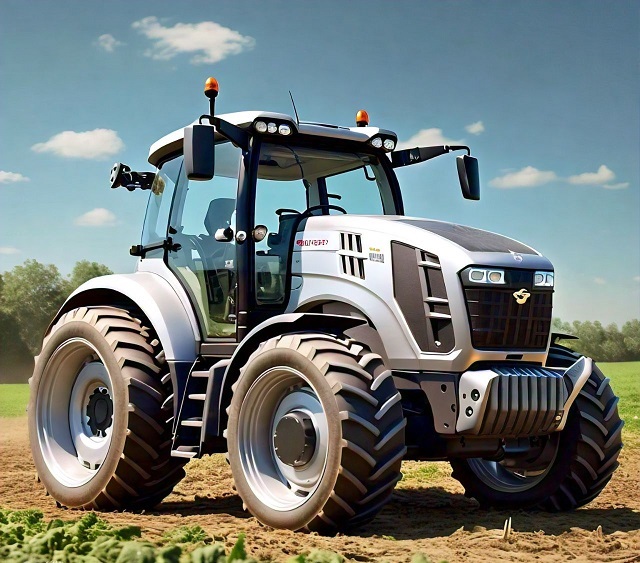
The Role of GPS and Automation
The combination of automation and GPS is one of the biggest developments in tractor technology. Precision farming is made possible by GPS systems, as tractors can follow precise paths with little assistance from humans. When it comes to planting, fertilising, or harvesting, this technology guarantees even coverage of the field while minimising overlap. Another result of automation is the creation of autonomous tractors, which run without a driver. Although their use is still in its early phases, these tractors have the potential to significantly boost efficiency by decreasing the need for human labour.
Improved Fuel Efficiency
The goal of modern tractor design is fuel efficiency. Engines that offer the same amount of power, if not more, with less fuel consumption have been created by manufacturers. This enhancement minimises the negative effects of farming on the environment while lowering operating expenses for farmers. To further increase sustainability, some tractors are now powered by alternative fuels like electricity or biodiesel.
Enhanced Durability and Maintenance
These days, tractors are made to last. Modern engineering and materials have produced machines that are less maintenance-intensive and more robust. Although regular maintenance is still required, advancements in design and technology have minimised the time and expense associated with it. These developments improve overall farming efficiency by guaranteeing that tractors stay dependable even under difficult circumstances.
Environmental Benefits of Tractor Efficiency
Reducing Soil Compaction
Compaction of the soil is a problem associated with heavy machinery such as tractors, and it can have a detrimental effect on crop development. Nonetheless, the design of contemporary tractors reduces soil compaction. Larger, low-pressure tires are one feature that helps the tractor’s weight be distributed more uniformly across the ground. Better crop yields and more environmentally friendly farming methods result from this lessening of the influence on the soil’s structure and promoting its health.
Precision Agriculture and Resource Management
When farmers use tractors equipped with precision farming technologies, they can manage resources more efficiently. These tractors lessen waste and the negative effects of farming on the environment by accurately administering water, herbicides, and fertilisers where needed. Long-term farming becomes more sustainable due to this precision’s ability to preserve resources while simultaneously increasing crop yields.
The Future of Tractors in Agriculture
Autonomous Tractors
The automation of tractors is the way of the future. Tractors that are autonomous—that is, that don’t need a driver—are starting to appear. These devices navigate fields and carry out activities with little assistance from humans thanks to sophisticated sensors, cameras, and GPS technology. By letting farmers concentrate on other areas of their business while the tractor does the fieldwork, autonomous tractors have the potential to substantially boost efficiency.
Smart Tractors and Data-Driven Farming
Another trend that will influence agriculture in the future is the incorporation of smart technology into tractors. Real-time data collection and analysis by smart tractors can give farmers insightful information about their crops and fields. This data-driven strategy makes it possible to make more informed decisions, which improves productivity and resource management. Smart tractors will become increasingly important in farming as technology develops, enhancing productivity and sustainability.
Also, read about The Evolution of Tractors
Conclusion on the Impact of Tractors on Farming Efficiency
Tractors are having a major impact on productivity in agriculture and have the greate impact of Tractors on Farming Efficiency . The agriculture business has seen a transformation thanks to these devices, which have increased productivity and dependability while decreasing labour costs and time. As technology develops, the future of farming looks even more promising, with automated driving, smart tractors setting the standard. Investing in new tractors helps farmers maintain their enterprises’ long-term profitability and prosperity in addition to keeping them up to date.
